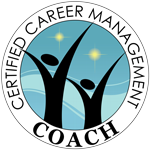As an executive recruiter, one of the biggest candidate assets to a client company is the resume. A majority of potential candidates spend more time on trying to make it the “best of the rest” than on any other part of the job search process. And well they should because the resume is a reflection of the candidates themselves.
A resume has many components that should capture the attention of a specific hiring manager, human resources person and even the headhunter/recruiter. In our office at PharmaOne Search, we see over 450 resumes per month – some outstanding, some pretty well done and others needing a lot of work.
To maximize your resume’s effectiveness in the pharmaceutical industry, adhere to these simple guidelines:
• The myth of the one (1) page resume is just that – a myth. Hiring managers don’t have time to assume a candidate has the in-depth knowledge that he/she is looking for in the position. They want to know as much pertinent detail as possible in an organized fashion. Therefore, make the resume 2-3 pages if necessary in order to highlight your experiences and accomplishments.
• Make your resume shine with bullet points instead of paragraphs. Hiring managers are picky and pressed for time. They will not read a paragraph, no matter how good it is. Instead, list information using bullet points and keep each point to no more than two lines long. The resume will flow and the reading will too.
• List the most detail for your most current position. Start with 8-10 bullets of accomplishments/experiences in your present position and work backward so that the next most recent position has 6-8 bullet points, and so on.
• Don’t take the chance of leaving an industry (i.e., pharmaceutical) unless you are absolutely convinced that a career change is right for you. For example, a candidate leaves pharmaceutical to pursue medical equipment and finds out it was not the right move 18 months later. Too many talented individuals go to seemingly greener pastures and then find out it is 10 times more difficult to get back into the industry they know best. Salary increases and/or big stock option packages are not always a reflection of the company itself. Investigate the company thoroughly. Consider what you are giving up long term. It may not be worth it.
• Include an addendum along with your resume. We have found that hiring managers want to see a capsule of one’s talent in a short, precise, easy-to-read format. Typically, the “addendum to resume” is a separate one-page document attached to the end of the resume with 10-12 bullet points highlighting specific job accomplishments that coincide with the position being applied for. It works! The extra attention given to resume preparation may not always get the job, but it does help pave the way to a more effective and successful interview.

